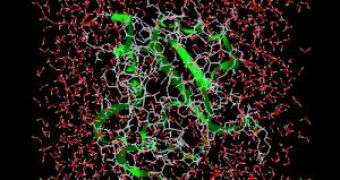There is a certain protein in the human brain which controls long term-memory and helps us remember things longer than a few hours, days or weeks. Two recent studies carried out by a team of scientists at the Johns Hopkins University found that the particular brain protein is called Arc and plays a key-role in long-term memory behaviors and associations, from song learning in birds to behaviors such as drug addiction in humans.
For instance, if one has been addicted to drinking earlier in life, he can remain sober while at home or in 'safe' places where there are no 'stimuli' to instigate the individual to grab a drink. But if he were to visit a bar and see the others drinking, smoking, partying, then his long-term memory-based behavior would be 'activated' and he may be more prone to go for a glass or more of alcoholic drink again.
Leader of both researches Paul F. Worley, M.D., Professor of Neuroscience and Neurology at Johns Hopkins pointed out: "We think Arc controls how brain cells learn and associate behaviors and remember them over a long period of time. For example, the person who quits smoking can wean himself from cravings at home, at work or outside. But if you put him in a bar with a drink in his hand, his brain remembers that former association and suddenly the craving returns. These types of long-term associations are memories wired in your brain."
Previous research conducted by the same Johns Hopkins team showed that the Arc protein is produced in the brain in large amounts whenever animals in the trial were awake, consequently, whenever the brain cells were active. But scientists could not identify then the reason why an active brain produces the Arc protein.
However, further and more recent research brought to light the fact that the particular protein plays a crucial role in the forming of memories by transporting 'materials' from one brain cell to another, into and out of the neural molecules. Therefore, the Arc protein is highly involved in the connection and 'talk' among nerve cells and the stronger these connections are, the more solid the memory becomes - surviving in one's brain for more than a few hours or days.
Professor Worley explained: "Moving things in and out of cells is critical for normal brain cell function. We were extremely excited that Arc might somehow be involved in this transport because it links transport to memory formation. This brings us one step closer to understanding how the brain saves memories."
The team of researchers also tested animals to see what happens when their brain lacks the Arc protein. Results showed that animals in the trial whose brain no longer produces the particular protein did fine when it came to short-term memory, but proved a total failure when it came to remembering memories after a longer interval of time. In conclusion, the animals lived in a permanent 'hic et nunc' (here and now) sequence of time. "We know that animals lacking Arc live only in the here and now. They learn fine in the short term, but tomorrow they will need to relearn everything," said the scientists.

 14 DAY TRIAL //
14 DAY TRIAL //